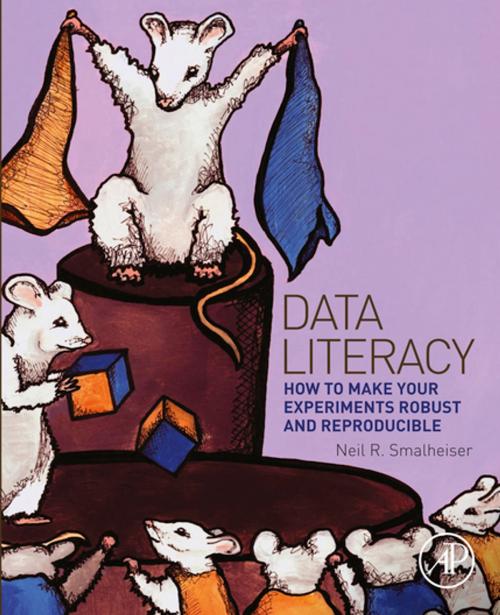Data Literacy
How to Make Your Experiments Robust and Reproducible
Nonfiction, Science & Nature, Science, Other Sciences, Molecular Biology, Health & Well Being, Medical, Specialties, Oncology| Author: | Neil Smalheiser | ISBN: | 9780128113073 |
| Publisher: | Elsevier Science | Publication: | September 5, 2017 |
| Imprint: | Academic Press | Language: | English |
| Author: | Neil Smalheiser |
| ISBN: | 9780128113073 |
| Publisher: | Elsevier Science |
| Publication: | September 5, 2017 |
| Imprint: | Academic Press |
| Language: | English |
Data Literacy: How to Make Your Experiments Robust and Reproducible provides an overview of basic concepts and skills in handling data, which are common to diverse areas of science. Readers will get a good grasp of the steps involved in carrying out a scientific study and will understand some of the factors that make a study robust and reproducible.The book covers several major modules such as experimental design, data cleansing and preparation, statistical analysis, data management, and reporting. No specialized knowledge of statistics or computer programming is needed to fully understand the concepts presented.
This book is a valuable source for biomedical and health sciences graduate students and researchers, in general, who are interested in handling data to make their research reproducible and more efficient.
- Presents the content in an informal tone and with many examples taken from the daily routine at laboratories
- Can be used for self-studying or as an optional book for more technical courses
- Brings an interdisciplinary approach which may be applied across different areas of sciences
Data Literacy: How to Make Your Experiments Robust and Reproducible provides an overview of basic concepts and skills in handling data, which are common to diverse areas of science. Readers will get a good grasp of the steps involved in carrying out a scientific study and will understand some of the factors that make a study robust and reproducible.The book covers several major modules such as experimental design, data cleansing and preparation, statistical analysis, data management, and reporting. No specialized knowledge of statistics or computer programming is needed to fully understand the concepts presented.
This book is a valuable source for biomedical and health sciences graduate students and researchers, in general, who are interested in handling data to make their research reproducible and more efficient.
- Presents the content in an informal tone and with many examples taken from the daily routine at laboratories
- Can be used for self-studying or as an optional book for more technical courses
- Brings an interdisciplinary approach which may be applied across different areas of sciences















